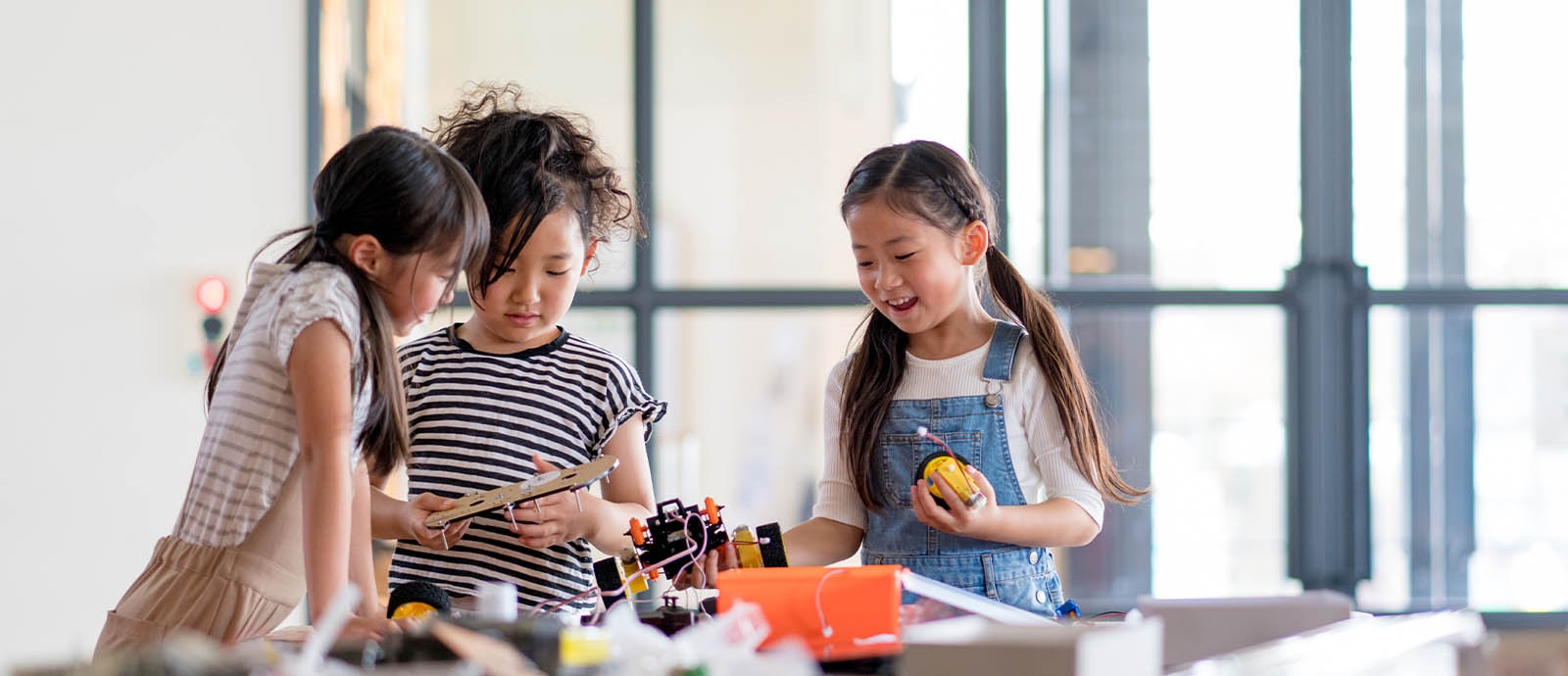
Understanding and overcoming barriers to learning
Not everyone has the same access to learning. Education can have a completely different meaning depending on where you live and what your background is. But we believe in the power of learning and want to help everyone get access to quality life-long learning. It’s why we are contributing to UN Sustainable Development Goal (SDG) 4, which calls for inclusive education and lifelong opportunities for all by 2030.
The World Economic Forum says: “More than a quarter of a billion children and young people have been ‘left behind’ and are totally excluded from education systems around the world.” And while the UN Sustainable Development Goals have focused the global community on the most pressing challenges facing many communities, the COVID-19 pandemic has amplified existing barriers – especially for children.
There has been a collective commitment by global organizations and world leaders to back SDG target 4.5 which specifically addresses inequality in education. The UN’s target is clear: “By 2030, eliminate gender disparities in education and ensure equal access to all levels of education and vocational training for the vulnerable, including persons with disabilities, indigenous peoples and children in vulnerable situations.”
Read the World Economic Forum’s latest assessment here
“To rise to the challenges of our time, a move towards more inclusive education is imperative. Rethinking the future of education is all the more important following the COVID-19 pandemic, which further widened and put a spotlight on inequalities. Failure to act will hinder the progress of societies.”
Audrey Azoulay, Director-General of UNESCO

Our commitment to equity will help everyone access education
We believe it’s our responsibility to help people overcome barriers to learning. Whether they’re held back by health challenges or facing socio-economic hurdles – we focus on under-represented groups including women, minorities, low-income families, and people with disabilities. These are important social issues for us, and we know that many people within these groups would benefit from additional learning and employability skills.
The best way for us to make a positive impact is to leverage the strengths of our organization to help the underserved access opportunities to learn. We have many products and services that help people access quality education and develop essential skills for employment. The COVID-19 pandemic has highlighted many of the gaps in society and reaffirmed the need to reduce barriers to learning – it’s a view we share with many of our customers as well as stakeholders in government.
We are committed to:
•We will increase access to learning for underserved groups through new and existing products and partnerships, identifying strategies to overcome barriers.
•By 2025, we will make our products and services representative of racial and ethnic minorities, gender and people with disabilities by reviewing existing processes, policies, partnerships, and practices to eliminate and prohibit bias and represent the customers we serve.

Our equity strategy

Our progress
Helping young women succeed
We partnered with CAMFED back in 2013, helping girls from low-income communities in the sub-Sahara to stay in school, learn and develop key skills. As of December 2019, we’ve awarded 2,880 BTECs to young women from marginalized backgrounds in Zimbabwe, Tanzania, Ghana and Malawi. And we recently adapted the qualification to make it accessible to even more young women – supporting girls as they graduate from school and mentoring young women to set up local enterprises

Educational equity in action
See case studies from around the globe.
Helping disadvantaged students improve their reading
Bug Club brings together over 350 books to suit all levels. Available in print and online, each book comes with additional games and quizzes to keep learners engaged. Find out how it’s helping children improve their reading in over 5000 UK primary schools
BTEC Student of the Year
Find out how Josephine Kiaga uses her energy and passion for the arts to make a difference. She’s an inspirational voice for her peers and a creative force in the wider community. So it’s no wonder she was awarded BTEC Student of the Year 2019.
“I want the female African perspective to be heard and film is a powerful tool to express my ideas. I want to be a director who makes a change.” Josephine Kiaga, BTEC Student of the Year 2019





